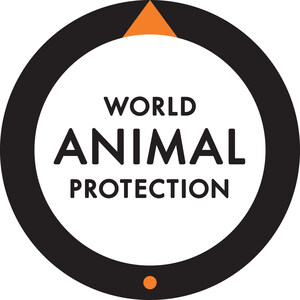Researchers expose that there is no ethical way to see wild animals at tourist venue
NEW YORK, Nov. 17, 2023 /PRNewswire/ -- Bali may be a dream destination for tourists, but a new investigation by World Animal Protection has revealed that every single wildlife venue in the country is a nightmare for the animals.
The report, Paradise Lost, conducted by World Animal Protection, found that over 1,300 wild animals, including elephants, orangutans, and dolphins, are being exploited for tourist entertainment in inadequate conditions across Bali and Lombok. The majority of the venues investigated fail to meet even the most basic needs of the wild animals being held in captivity.
The investigation also found that despite increasing demand for responsible tourism options, many of the world's largest tourism operators are still promoting and selling these cruel wildlife venues in Bali, thereby profiting from animal abuse.
An assessment of 34 venues was conducted, aiming to provide a current picture of wildlife in the tourism/entertainment industry in Bali and Lombok, and identify any changes since World Animal Protection's last assessment in 2017. It concluded that there has been no significant improvement in the six years since the last report.
The 2023 Paradise Lost report reveals:
- Wild animals are still suffering from inadequate conditions across all venues visited during the investigation.
- Elephant riding and bathing, close encounters, wildlife selfies, swimming with dolphins in artificial pools, and touching turtles in small pens are some of the cruellest wildlife attractions observed.
- Elephants were seen chained without shade during the day at Mason Elephant Park and Tasta Zoo.
- Global travel giants including GetYourGuide, Traveloka, and Trip.com continue to sell cruel wildlife entertainment attractions in Bali and Lombok for profit.
- While some small changes were noted, none were significant enough to result in any venue being rated even close to the 'best possible' scenario for any of the focal species.
Liz Cabrera Holtz, Senior Programs Manager, World Animal Protection, US said:
"Bali might be a paradise for tourists, but wild animals are living in misery in venues across Bali. World Animal Protection is warning US tourists that there is currently no ethical way to view wild animals at tourist venues in Bali and Lombok. Tourists have a responsibility to ensure their travel experiences are not hurting animals. We're urging all travelers to steer clear of all wild animal venues and instead support places like accredited sanctuaries and Wildlife Heritage Areas."
World Animal Protection and World Cetacean Alliance recently launched a new global program, working in coalition with responsible travel businesses and wildlife charities, to forever change the way people view and understand wildlife. Wildlife Heritage Areas have been launched in the United States, Peru/Colombia, Brazil, Italy, Australia, Portugal, and South Africa. Wildlife Heritage Areas provide a clear solution for eliminating the exploitation of animals by the modern tourism sector.
It is long past time to end all attractions that force animals to suffer by allowing them to be ridden, touched, or posed for selfies. The tourism industry needs to continue to move towards a sustainable model to ensure all wild animals have a right to a wild life.
About World Animal Protection
World Animal Protection is a global organization working to end factory farming and wildlife exploitation. We expose cruel systems, promote animal-friendly alternatives, and influence policy change. For over 70 years, World Animal Protection has been rewriting the story for animals.
Working across almost 50 countries with offices in 12, we are the only animal welfare organization with UN Consultative Status, enabling us to engage with and influence global decision-makers. We prioritize animals in farming and wild animals exploited for use in entertainment, as pets, and in fashion.
SOURCE World Animal Protection

WANT YOUR COMPANY'S NEWS FEATURED ON PRNEWSWIRE.COM?
Newsrooms &
Influencers
Digital Media
Outlets
Journalists
Opted In





Share this article